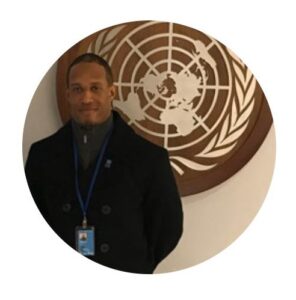America First Movement Clashing With the Moderates
Congressional members such as Boebert, Greene, Gosar, and Gaetz have been leading the calls to cut all aid out of Ukraine and reassess America’s partnership with European states throughout the war. Current House Speaker McCarthy denied Zelensky’s request to come to Kyiv to expand the partnership between both nations.
Despite the US only allocating close to 6% of the US defense budget, with weaponry dating back to the early 90s sitting in storage, this still has not sufficed potential 2024 candidates, including former President Trump and current governor of Florida, Ron DeSantis.
In a recent Fox News interview, Governor DeSantis stated “while the US has many vital national interests…becoming further entangled in a territorial dispute between Ukraine and Russia is not one of them.” In truth, there is no dispute of sovereign Ukrainian lands, and this can be seen as dangerous political rhetoric as it gives Putin a justification to latch onto and annex Ukrainian territory that both the United Nations and Moscow recognized.
Nonetheless, most Americans support backing Ukraine from an imperial invasion, with moderate Republicans and Democrats making the majority and the far right, far left, and isolationists making up the minority.
Why This Plays into Putin’s Hands
The Kremlin, which has realized its logistics shortages and manpower issues, knows the war hasn’t exactly been going the way it planned. From conducting major offensives towards Kyiv, Mariupol, and Severodonetsk to now conducting smaller localized offensives in Bakhmut, Soledar, Avdiivka, and Vuhledar, Russia is now aware they no longer have the capabilities the world saw in Georgia 2008 and Syria 2015.
Now knowing where potential American presidential candidates stand, Russia will attempt to highlight Ukrainian shortfalls and freeze the war favorably in their terms. As satellite imagery has shown extensive fortifications made by Russian Forces in the occupied regions, they have learned from their disasters in Kharkiv and Kherson and will look to make the ZSU (the armed forces of Ukraine) expend logistics while conducting smaller offensives.
If Putin thinks the fate of Ukrainian aid will come down to the presidential elections of the biggest donor of the war thus far, he will instruct agents to try to interfere in it as much as possible—something Yevgeny Prigozhin, the CEO of Wagner, admitted to. The Russian Ministry of Defense (MOD) will try to keep the war going until 2025, potentially hoping for a more isolationist American congress and presidency that will force Ukraine to cede lands to Russia—enabling a war of conquest once again, which could lead to future conflicts around the globe if Putin gets away with illegal land grabs.
Efforts From Other NATO Members To Take the Lead
Britain’s near decade-long training mission for the Ukrainian Armed Forces (ZSU) had bought not only Kyiv but Europe time to prepare for Russia’s full invasion in 2022. With the ZSU under the Western doctrine style of warfare, Kyiv has not only done a great job at repelling major Russian offensives but also scored major victories liberating the Kharkiv region and the west bank of Kherson.
London has also stepped up efforts to make sure prospective members like Ukraine, Finland, and Sweden still have partners for mutual defense, even if the unlikely scenario occurs if America drifts towards isolation foreign policy. Though the UK has gone through an economic recession post-Brexit, they have shown the world how to prepare other allied nations for future conflicts even when their empire is set.
Poland has been on one of the world’s largest military spending sprees in history, with major weapons procurements from the United States, South Korea, and Turkey. Preparing to expand its military capabilities, Warsaw has prepared for all scenarios as Russia’s aggression and saber-rattling rhetoric has made the nation realize it can no longer rely upon other members for its defense. A permanent presence of the US Fifth Army Corps will also enhance the security of Eastern Europe going forward.
Why Europe Should Prepare Regardless of Elections
Even with a potential shakeup if the isolationist wing were to somehow take majority power, it is in Europe’s best interest to build its defense capabilities without the help of the United States. As seen in the war in Ukraine, there has been a shortfall of 155 mm shells, which has become extremely important as neither Moscow nor Kyiv has air superiority, and the war has become a duel of artillery.
A European defense industry would mitigate logistical strains and also create thousands of jobs, stimulating the continent’s economy as it did with the US during production for the first two world wars.
With America now having more of an operational focus in Asia to bolster allies like South Korea, Japan, Taiwan, Australia, and others from North Korean and Chinese aggression, this means less focus on the affairs of Europe. Nations who call themselves modern leaders and examples, such as Germany, must step up and prepare the lagging members of NATO to enhance their defensive capabilities, as an unpredictable American future is not something to rely on.

Julian McBride is a forensic anthropologist and independent journalist born in New York. He reports and documents the plight of people around the world who are affected by conflicts, rogue geopolitics, and war, and also tells the stories of war victims whose voices are never heard. Julian is the founder and director of the Reflections of War Initiative (ROW), an anthropological NGO which aims to tell the stories of the victims of war through art therapy. As a former Marine, he uses this technique not only to help heal PTSD but also to share people’s stories through art, which conveys “the message of the brutality of war better than most news organizations.”










COMMENTS